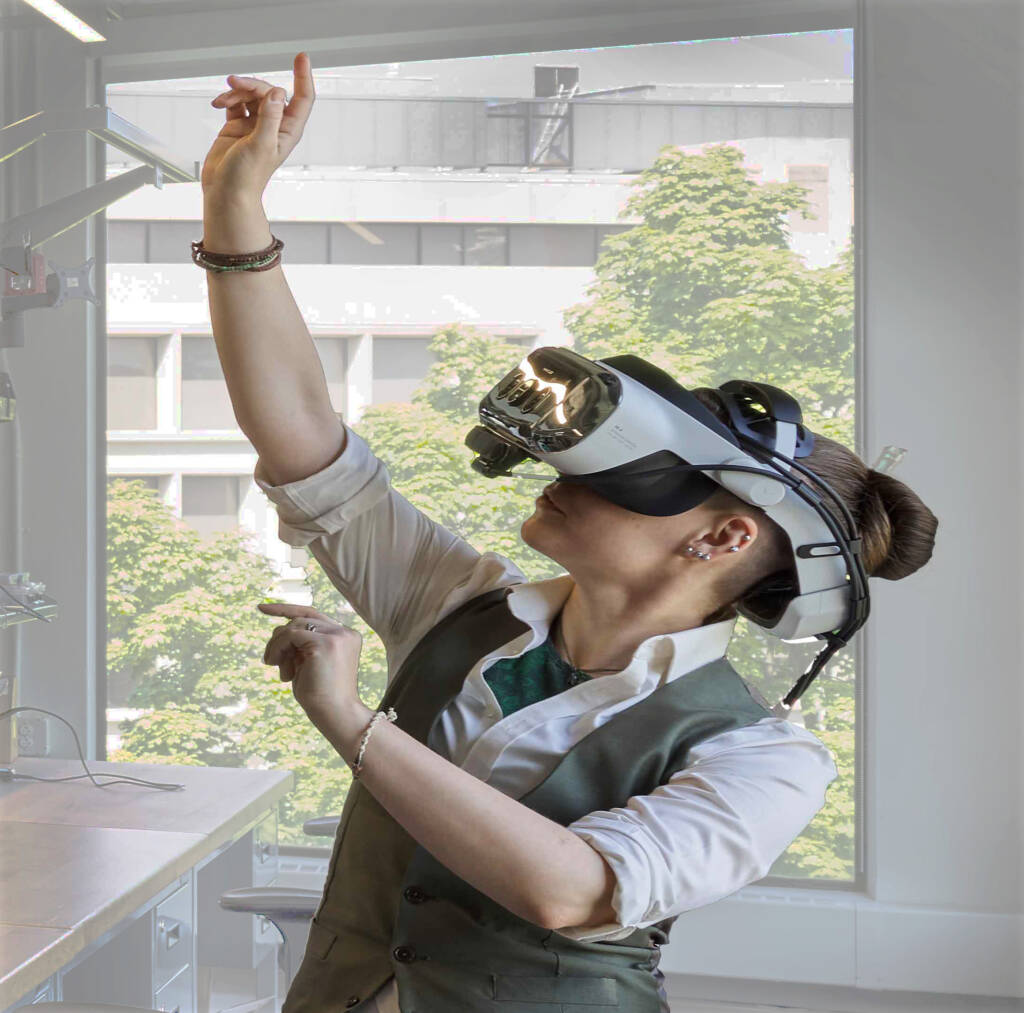
From her formative years in Cupertino, Calif., Susan Schramfield had diverse interests in engineering, writing, and design. During her undergraduate studies, she initially pursued a degree in costume design. However, after a hiatus, she returned to Temple University at 29 and realized that “my passion and aptitude for math and science far surpassed my interest or skill in the arts.”
When it was time to begin her graduate studies, Schramfield was drawn to Case Western Reserve University and the Human Fusions Institute because of her interest in working with neural interfaces focused on touch and the peripheral nervous system. As a member of HFI Director Dustin Tyler’s research group, she has found that her background in the arts has led to her success in designing and fabricating technological systems. Recently, she completed her M.S. project, “Mixed Reality Experimental Environment.”
Primarily interested in neural interfaces, haptic displays, and wearable technology, Schramfield decided on the topic for her project when she struggled to find precise methods for collecting quantitative data while studying haptics and neuro-engineering. She developed a system allowing HFI researchers to gather data to push forward frontiers in haptics, neural interfacing, and virtual presence. The platform she built allows a researcher to easily collect motion data from subjects in mixed reality and from real and virtual objects the subject might interact with. The platform can also track the focus of the user’s gaze, and Schramfield plans to continue adding functions to collect more kinds of data. “I wanted to create something with enduring value to current and future students at HFI and enable them to focus more on their research questions and less on developing tools to ask them,” she said.
Though Schramfield has completed her M.S. project, she will remain at HFI as part of the engineering team. “I believe this group has incredible potential to do good in the world.” She thanked HFI’s most recent Ph.D. graduate, Nabeel Chowdhury, for his mentorship throughout her project. “He went above and beyond to guide me through graduate school. Without his advice, guidance, and friendship, I do not think I would have had the success I have had in this program.”

